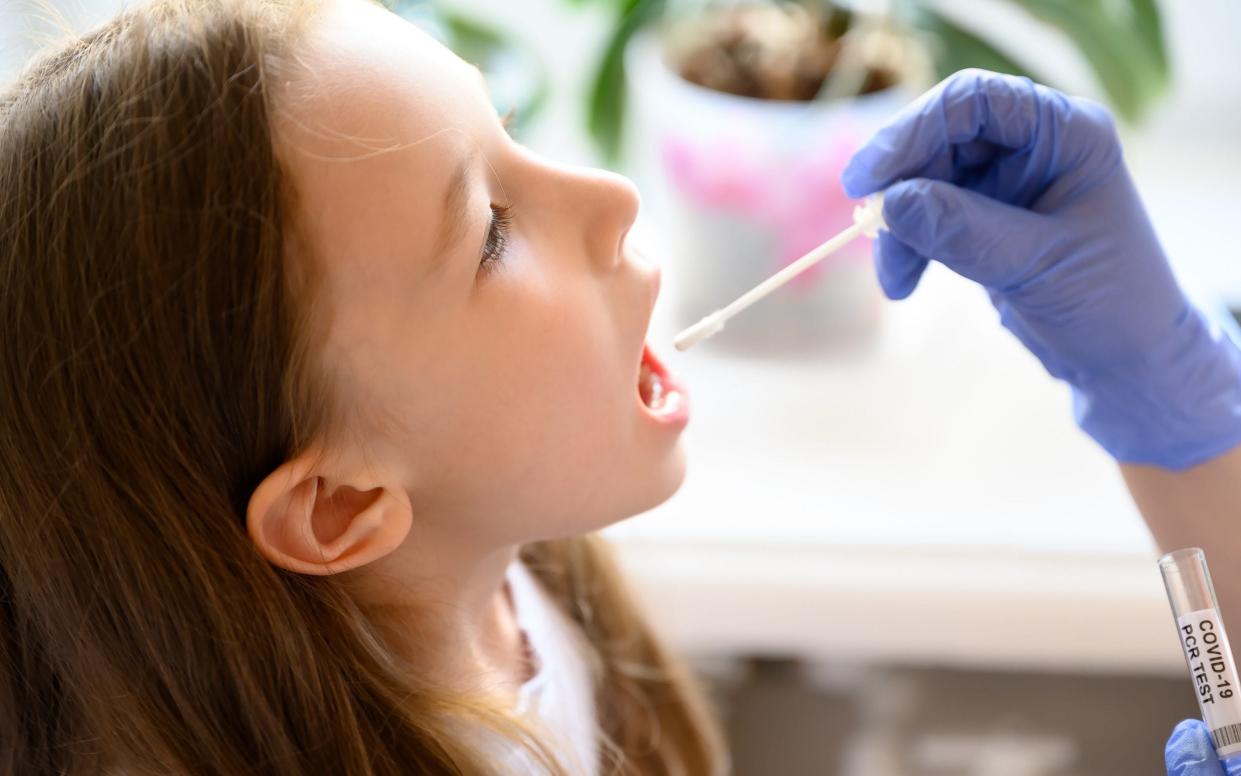Testing children without Covid-19 symptoms disrupts their education, schools warned

Testing children without Covid-19 symptoms is disrupting their education and should be stopped, the Royal College of Paediatrics and Child Health has warned.
Pupils in England are being encouraged to take two lateral flow tests at home every week to root out cases of the virus before it spreads through schools.
However, the Royal College has criticised the system, arguing it is making it difficult for children to consistently attend lessons.
“Routine testing of children without symptoms is still interrupting children and teenagers’ school attendance and we do not believe this should continue,” said the professional body.
“Instead, schoolchildren should be tested only if they have symptoms of Covid-19. At the same time, and as with other infections, they should not go to school if they are unwell.”
Pupils who test positive must isolate at home for 10 days. The child, or their parents, will be asked to provide details about close contacts.
Children named as close contacts will be asked to take a PCR swab test, and if it is negative they will not have to isolate. It is hoped this will avoid whole classes being sent home.
All 12- to 15-year-olds in England are now being offered the Covid-19 vaccine after leading medical advisers said that children would benefit from reduced disruption to their education. The rollout will begin next week.
Sajid Javid, the Health Secretary, said in a statement: “I have accepted the recommendation from the chief medical officers to expand vaccination to those aged 12 to 15 – protecting young people from catching Covid-19, reducing transmission in schools and keeping pupils in the classroom.”
The Royal College said the rollout could have benefits but must be combined with other measures to ensure learning is not disrupted.
“We believe that vaccination could benefit healthy children, irrespective of any direct health benefit, in enabling them to have less interruption to school attendance; to allow them to mix more freely with their friends; to give more protection to friends and family members whose health may be at risk from the virus; and to help reduce the anxiety some children feel about Covid-19,” it said.
“But vaccination of 12- to 15-year-olds must be part of a concerted overall plan to ensure consistent and uninterrupted access to school. Tackling this pandemic, which is still ongoing, does not depend on vaccinating children, who have already borne a great deal on behalf of us all.”
Dr Camilla Kingdon, the president of the Royal College of Paediatrics and Child Health, said: “We want schools to be enabled to rethink their approach to managing Covid. Children and teenagers need to focus on their education and school attendance must be encouraged without being interrupted by routine testing of asymptomatic children and teenagers.
“Participation in activities inside and outside of school are key to children’s development, resilience, and mental health and wellbeing.”
A Government spokesman said: “Education is a national priority and expanding the offer of vaccination to those aged 12-15 will protect more young people from the virus, reduce transmission in schools and keep pupils in classrooms.
“The measures in place in schools for the autumn term strike a balance between making schools safe – with enhanced ventilation, covid testing and vaccinations of pupils and staff – and reducing disruption by removing bubbles and face coverings.”

 Yahoo News
Yahoo News 
